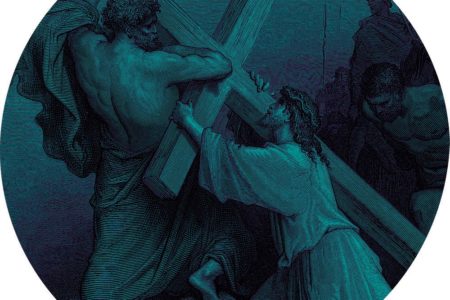The Thessalonians’ Testimony
1 Thessalonians 1:9–10
When the Thessalonians received Jesus Christ as their Savior, they experienced a thrilling transformation. They were completely delivered from the darkness and depravity of paganism and anxiously anticipated Christ’s return. The final two verses of chapter 1 provide great insights into the strength of the Thessalonians’ faith, the hope they possessed in Christ, the promise of deliverance from God’s wrath, and the glorious return of Jesus for His church.
Redeemed by Christ
Instead of explaining what happened in Thessalonica, the apostle Paul allowed others to speak about the Thessalonians’ salvation: “For they themselves declare concerning us what manner of entry we had to you, and how you turned to God from idols to serve the living and true God” (v. 9).
The phrase for they themselves indicates why Paul and his missionary team did not need to spread the story about the Thessalonians’ salvation. It seems Paul, while in Corinth, had heard from traveling tradesmen that the Thessalonians were boldly sharing their new faith. Impacted by the testimony, the tradesmen were spreading what they had heard throughout all Macedonia and Achaia.
Paul agreed with the reports being circulated concerning the “manner of entry” the missionary team had received in Thessalonica. First, the Thessalonians’ faith in Christ was being reported accurately. Second, Paul said the Thessalonians had received Silvanus and him warmly. Third, they had responded immediately to the gospel.
Everyone saw the dramatic change in their lives: They had “turned to God from idols to serve the living and true God.” Their transformation was deliberate and immediate. After repenting of their sin and receiving the Lord, they once-and-for-all forsook their idols and left pagan worship. Most of the Thessalonians who came to faith had been part of the city’s massive pagan population.
Paul stated the sequence of the salvation process when he said “to God from idols.” The Thessalonians did not decide to leave paganism and idol worship and then come to God. Rather, the opposite was true. After receiving Jesus Christ as God, they renounced idol worship. Their eyes were opened to the true God, and the demonic practice of idolatry repulsed them.
The Thessalonian believers made a total life commitment “to serve the living…God.” The word serve (Greek, douleuein) means to be a “bond-slave” to Christ. The Thessalonians left slavery to idols to become slaves of God. A bond-slave was someone who was completely and willingly committed to a master, having no rights of his or her own. This should be the attitude of all Christians. Notice the contrast: The Thessalonians served a “living” God, rather than a dead idol, and worshiped the “true God,” rather than a false god that does not exist.
Return of Christ
Not only did these believers rejoice in their salvation and service to the Lord, but they also had great expectation and hope of seeing Christ return at any time: “And to wait for His Son from heaven, whom He raised from the dead, even Jesus who delivers us from the wrath to come” (v. 10).
The words to wait imply the Thessalonians looked for the Lord’s return as one eagerly anticipates the arrival of a loved one. The verb is in the present tense and speaks of a continual expectancy, looking every day for the Lord to appear. Jesus Christ “His [God’s] Son” is the One whom they expected to appear personally at any moment. This statement makes it clear that Paul saw Jesus Christ as deity, the God-Man.
The Thessalonian believers knew that when Jesus Christ returns, He will come “from [out of] heaven.” Christ had ascended into heaven after His 40-day postresurrection ministry (cf. Acts 1:9–11), and He will return (cf. Phil. 3:20–21). Jesus had said as much to His disciples before being crucified (Jn. 14:1–4). His disciples had expected Him to return for them and preached that message. One of the major themes of 1 and 2 Thessalonians is the soon return of Jesus Christ from heaven for His church. All believers should wait patiently, but eagerly, for Christ’s appearance—even more so today as we watch worldwide events unfold.
The Thessalonians were looking for what is called “the blessed hope” (Ti. 2:13). In theological terms, this event is called the Rapture, and Paul addressed it later in this epistle (1 Th. 4:13–18). It is Jesus’ glorious appearing to take the church from Earth to heaven. The blessed hope should not be confused with Christ’s Second Coming, which occurs at the end of the Great Tribulation. Paul believed the Rapture would occur in his lifetime, for he wrote, “we who are alive and remain shall be caught up together” (v. 17).
Sadly, many Christians never hear messages on the Rapture or Second Coming in their churches. If the Rapture is mentioned, it is only briefly, with few details. Some churches reject and even condemn the Rapture. Others spiritualize it, changing its true meaning. Consequently, people are ignorant or confused about the subject. Scripture clearly teaches that the Church Age will be consummated on Earth when Christ comes in the air to take His church to heaven––and the event is identified as the Rapture.
Jesus, the God-Man, whose return the Thessalonian church was anticipating, is the same Jesus “whom He [God the Father] raised from the dead” (1:10). Jesus died; was buried in Joseph of Arimathea’s tomb; physically arose from the grave; and today sits at the right hand of God the Father in a human-looking, but glorified, body. Jesus mentioned His resurrection numerous times during His First Advent (cf. Mt. 16:21; Lk. 9:22; 18:33; 24:46). Jesus’ literal, bodily resurrection is a historical, trustworthy fact accomplished in the power of Almighty God (Eph. 1:19–23). Had Jesus not been raised from the dead, there would be no hope of human redemption or resurrection.
Rescued By Christ
Jesus is also called the One “who delivers us from the wrath to come” (1 Th. 1:10). The word wrath (Greek, orge) does not mean a quick burst of anger that passes away. Rather, it speaks of God’s settled, holy anger, which is controlled and passionate against evil. In other words, Scripture describes God’s wrath as the settled opposition of His nature against evil.
The wrath of God is a divine response to all evil, first manifested against Lucifer because of his rebellion against God (cf. Isa. 14:12–17; Ezek. 28:14–15) and then manifested against mankind after Adam and Eve sinned (Gen. 3:1–24). The Thessalonian believers clearly understood what Paul meant when he spoke to them about God’s wrath.
Unredeemed people are unable to understand God’s wrath because they are spiritually dead and, by nature, children of God’s wrath (Eph. 2:1–3). God’s wrath is holy and completely justified. Man’s wrath, on the other hand, is unholy and emanates from a sinful nature that craves revenge and harbors hatred. God’s wrath is just and a reaction to objective moral evil.
He manifests His wrath for two basic reasons: to maintain law within the world, which demands justice against moral wickedness, and to bring retribution on those who commit evil.
The word delivers means to “rescue” or save someone from a present danger that would destroy his or her life. Jesus Christ is the believer’s Deliverer who promises to rescue all true believers from God’s wrath. The word us refers to Paul, Silvanus, Timothy, and the Christians in Thessalonica––all of whom would be delivered from God’s coming wrath. It also applies to all believers throughout church history who put their faith in Jesus Christ.
Deliverance for the church takes place at the Rapture, which will occur before the seven-year Tribulation, when God pours out His wrath on a world of evil.
Believers in Jesus Christ will never experience God’s wrath against sin. Why? Because Christ took that wrath upon Himself and became the propitiation for sin, satisfying the righteous demands of a holy God and making it possible for God the Father to forgive all who put their faith in Jesus (cf. Rom. 5:5–11).
Those who reject God’s love and redemption through Jesus Christ abide under God’s wrath: “He who believes in the Son [Jesus Christ] has everlasting life; and he who does not believe the Son shall not see life, but the wrath of God abides on him” (Jn. 3:36).
Anyone who dies without accepting Jesus Christ as his or her personal Savior will be separated from God forever, and God’s wrath will rest on that individual throughout eternity. People who die as unrepentant sinners go to hell. At a time determined by God, all the wicked dead will be resurrected from hell to stand before Christ at the Great White Throne Judgment (Rev. 20:11–15). They will be judged guilty of eternal damnation and cast alive into the Lake of Fire to suffer throughout eternity. Nowhere does Scripture teach universal salvation, soul sleep, an intermediate state of purgatory, a second chance, or annihilation of the wicked.
Thus deliverance from the coming wrath is twofold: First, people who accept Christ are delivered from eternal damnation and will never face hell or the Lake of Fire. Second, they are delivered from God’s divine judgment that will afflict the earth during the Tribulation.
No believer will ever face God’s wrath: “For God did not appoint us to wrath, but to obtain salvation [deliverance] through our Lord Jesus Christ” (1 Th. 5:9). That said, God, as a loving Father, does use chastening as an instrument of discipline to correct sin in a believer’s life; but He does not do so out of wrath.
Though Paul did not spend much time with the Thessalonians, he taught them well. They possessed knowledge about God, Christ’s death and resurrection, deliverance from sin, redemption, Christ’s promised return, and God’s wrath. And they were completely committed to Christ. What a testimony. Let us be as effective in heralding our testimony in Christ throughout the world as we await Christ’s return.









God bless you for the explanation,it was helpful to me.